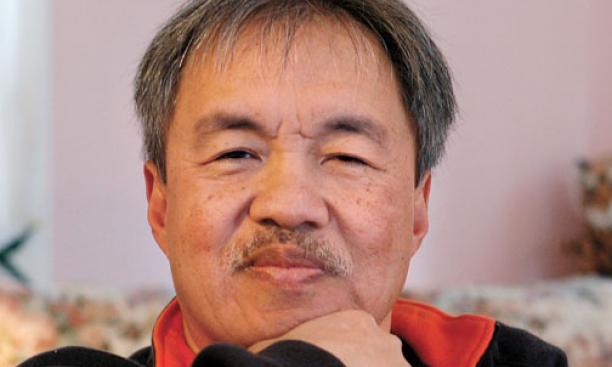

When Noel Valero ’82 *86 was diagnosed in 2007 with dystonia — a movement disorder whose symptoms and excruciating pain eventually prevented him from working — he thought his chance to make a difference in the world had passed him by. Doctors told him at the time that he would be completely incapacitated in three to five years and would die shortly after that. Valero despaired, but eventually friends “pulled me out of the pity pool and strengthened my resolve to continue to do something positive with my life,” he says.
Valero turned his sights on using some of the few productive hours he has during the day to reach out to other people who suffer from the illness. In November he formed the American Dystonia Society, or ADS (www.dystoniasociety.org), a nonprofit that aims to raise awareness and funds to advance research, diagnosis, and treatment.
The organization is completely volunteer-run. Valero takes no salary, and there are no offices. Among the board members are doctors Pamela Schaefer ’82, Stuart Joseph ’82 (recently diagnosed with dystonia), and Christopher Walsh s’82. To date, ADS has raised nearly $10,000 and hopes to raise $10 million to $25 million annually within 10 years.
The third-most-common neurological movement disorder after Parkinson’s disease and essential tremor, dystonia is caused by abnormal brain activity and results in involuntary muscle spasms and contractions that force the body into repetitive and often twisting movements and awkward postures. Experts aren’t sure what causes the onset of the disease, which can affect one or more areas of the body and result in varying degrees of disability and pain. Valero has multifocal dystonia, with spasms and pain primarily in his eyelids, jaw, neck, right arm, and back.
Dystonia is the least-funded of movement-disorder diseases, says Valero. About 300,000 people in North America have been diagnosed with it, but up to 1 million may not know they have it or have been misdiagnosed, he adds. Diagnosing the disease can be difficult because the symptoms can be mistaken for other disorders.
A mechanical and aerospace engineer in Princeton Junction, N.J., Valero designed spacecraft and satellites for the U.S. Air Force and then for Lockheed-Martin before starting his own consulting company in 1991.
The symptoms of dystonia came on gradually, and a movement-disorder specialist finally diagnosed dystonia three years ago. “It was a very low point in my life,” Valero says. In addition to the spasms and pain, he has had some short-term memory loss and trouble focusing — side effects of the disease and antispasmodic medication.
Today, with rest and treatment, he manages his pain, and his neurologists believe his prognosis has improved and his condition may have plateaued. But life has been a struggle. Empty nesters, he and his wife, Dawn Valero ’85, who has helped him through his ordeal, had imagined that they would be traveling and skiing, hiking, and biking at this point in their lives. Those dreams have been put to rest. Valero can function well for only a few hours a day a few days a week. Driving a car is painful, and he no longer can take his border collie, Piper, for walks. “To have the simple things taken away from you is very hard,” he says.
One of the most trying aspects of dystonia, he says, is the loneliness. Because it is not well known and many people who suffer from it are homebound, support groups are not plentiful. In addition to raising funds for research, ADS launched in March an international network for patient and family support that provides biweekly virtual meetings via teleconferencing and online chat groups.
Valero works on ADS issues a few hours a week. He also volunteers at Princeton University by helping to teach engineering design classes one day a week for two hours.
